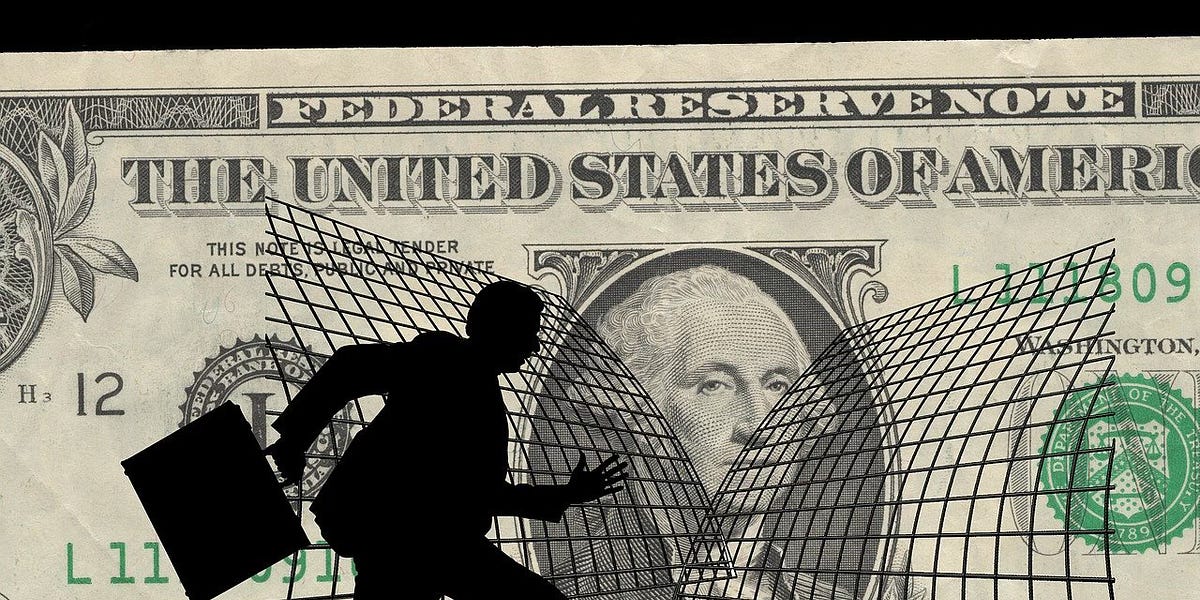Clarification, this is not a sermon. I am preaching to counter or critique your post, just an observation. There is a long trend here. In small group survival situations we may act for the good of the whole because the stakes are so apparent. But in any larger group and in some percentage of us, mostly the smart ones who have the opportunity and are in the position to take advantage, this is what we often see. Oh, and you also need a lot of sheep willing to be oblivious, or herded and sheared. That’s humanity in a nutshell.

It's also the case that as groups get larger, the diversity of thought on what the social contract
should be grows. And so you have a more constant tension between different ideas, and different directions that people want to take that social contract as the group grows. This tension can reach a breaking point at times over specific things where two sides dig in over more intractable issues, with slavery being a key one in US history. It feels like right now we are in a similar position where women's and minority's rights are creating a similar digging in and is becoming an intractable issue.
W said "A dictatorship would be a heck of a lot easier, there's no question about it," when asked about his interactions with Congress during his first six months. He was trying to joke about how the President can't get everything he wants from his agenda, but I think it is revealing. Not so much that he saw himself as a dictator-wannabe, but rather that folks do tend to see that if they can dictate the social contract, it'll just be easier to "get things done" (not realizing that plenty of people don't want those things done
to them). The question then becomes more about how do people go from "yes it would be easier" to "yes, we should do it", and get people to go along with it. Ultimately, I think the shift in the last few years is that the faction of "we should do it" has gotten louder and stronger by unifying under Trump's banner. The thing I wish I understood better is the process for
how you get a power base to go along with it. There's a lot of discussion about fear and creating an out-group for the power base to focus on, but it seems like there's a lot of nuance involved that I'd love to dig into.
Agreed on stuff like this being long term. America First is not new. It had Nazis and Nazi sympathizers back in the 30s/40s. The arguments around Ukraine/Russia sound a lot like the arguments around UK/France/Germany in the late 30s. So we're not even seeing a particularly new strain of thought here in the US, just the support base it enjoys is much more aligned under a single banner at the moment. Today it's the "coastal elites", before it was suspected communists. Difference there is that both national parties seemed to enjoy a bit of the red scare. History may not always repeat, but it sure as hell rhymes.
Capitalism will never do it for the majority without hard-core regulations design to prevent gluttony, the unhealthy accumulation of wealth. I’d regulate out of existence, both billionaires and multimillionaires. How much money do you need to live a good life? Do we have it in us? Let’s see if we can first avoid imploding.

This is the bit that's interesting. Because part of the post WWII boom IMO was tax policies that helped tamp down on some of this. Over the last 50-ish years, we've slowly been dismantling those policies. Policies that encourage the thinking of "I can invest this dollar in my business (assets, jobs, etc), or the government will get a good chunk of it" helped build a lot of wealth and good paying jobs in the US. But at some point, things shifted and we started getting into the mindset that we need to "appease" business as holy job creators, rather than "manage" business as a matter of public policy.

www.tristatehomepage.com


